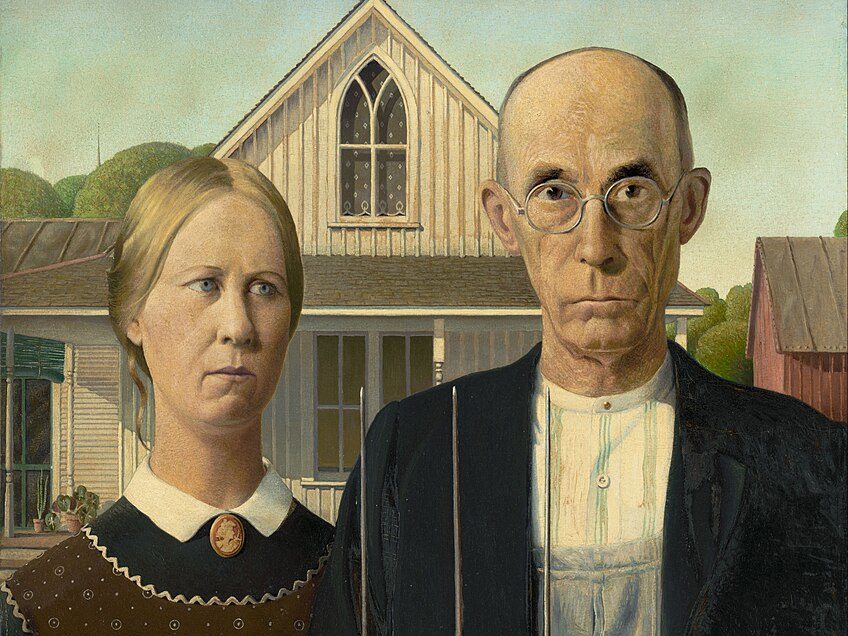What has been given you to carry? Where do the needs and pains of others conscript your freedom? When is freedom mitigated by circumstance? What are the situations that you are born into or meet in life to which you must respond, perhaps even at the cost of your life? What may you not walk away from?
These are important questions, not easy to answer. But they are key questions vis-a-vis discerning one’s vocation: what is that special task to which each of us is asked to give over our lives?
Each of us comes into this world with a God-given vocation. In essence, that’s easy enough to pinpoint. Simply put, we are all asked to love God and love one another. That’s the same for everyone. However, beyond that bald essence, it’s no longer the same for everyone because we are all born into and meet different circumstances in life.
We are born into different families, different countries, different times in history, different cultures, different situations of poverty, or affluence, different faiths, different kinds of intelligence, different natural aptitudes, and different physical bodies that vary greatly in terms of health, strength, and physical attractiveness. Philosophers call this your “existential” situation. In that, in that particularity, like snowflakes, no two persons are ever the same. And that uniqueness will color and perhaps fundamentally define your vocation and help dictate what will be given you to carry.
Here's what’s at stake. We are all born free, yes, but many things both conscript and constrict our freedom.
Let me illustrate with a personal example. I was born the twelfth child in a large family. My parents, first-generation immigrant farmers who during many years of marriage and child-rearing, were unable to fully support our family from the farm alone. We needed some added income. Also, our outback rural community had only an elementary school, and any education beyond the eighth grade required leaving home to attend a boarding school, something my parents could not afford.
Because of that, five of my older siblings had to end their education after elementary school, not because they wanted to or because they lacked the desire or intelligence for higher education, but rather because our financial need and the absence of a local high school necessitated that they leave school and take jobs to help support the family.
For all of them, particularly for a couple of them, this was a hard sacrifice. Everything in them hungered for more freedom and choice; but, given their circumstances, this was what they were given to carry. And that sacrifice, that giving over of themselves for something beyond themselves, very much defined their vocation and their very persons.
A large part of their vocation was to sacrifice many of their own dreams and ambitions for the sake of the family. Among other factors, my own opportunity for an education was largely predicated on their sacrifice.
However, in this, they are not exceptional. Their sacrifice is mirrored in the lives of millions of men and women all over the world: immigrants who need to sacrifice their own ambitions in order to work in the fields or take menial jobs to support their families; young women and men from developing countries who have to leave their families and go abroad to earn money to send back to their families; millions of young people who cannot attend university because of cost; countless women and men who need to sacrifice whole seasons of their lives to take care of an ill or aging parent; and billions of women who have to sacrifice career to raise children. This is what has been given them to carry — and their sacrifice helps constitute the heart of their vocation.
Beyond these things which can conscript our freedom and radically dictate our vocation, there are still other things which either constrict or open our freedom and so help dictate our vocation: having robust physical and mental health as opposed to being physically or mentally fragile; having an athlete’s body as opposed to having a physical disability; being an alpha male or a homecoming queen as opposed to being the one who is bullied and shunned; being temperamentally aggressive as opposed to being temperamentally gentle and accommodating; or being the one who comes from privilege as opposed to being the one who comes from a background without privilege.
Each of these not only helps dictate your vocation, but each also helps to specially equip you for your vocation. If you are on the fragile and wounded side of the equation, your seeming human shortcomings can give you special powers to be a healer for others. Being wounded, you have special powers to become a wounded healer.
Conversely, if you are on the privileged side of the equation, that privilege also dictates your vocation and your special gift, namely, you are now the one to whom much is given and consequently from whom much is expected.
What has been given you to carry?

